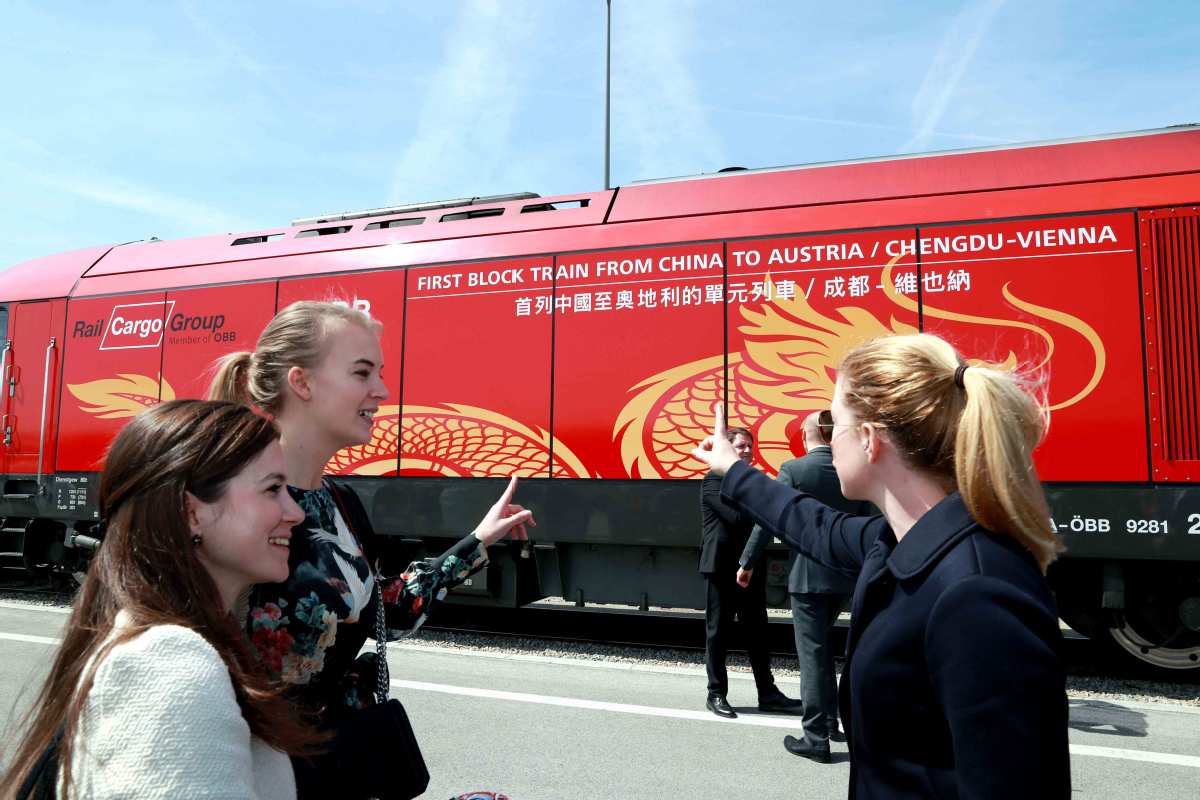Transport network transforms Chengdu


Sichuan province aims to become a major logistics hub, along with its capital city
Air routes and an advanced international railway network have transformed Chengdu - in landlocked Sichuan province - in major ways since China's reform and opening-up policies were introduced in the late 1970s.
Now the city can align growth closely with the outside world thanks to the extensive transportation network.
Every student of Chinese literature knows the famous line from Li Bai, a great poet in the Tang Dynasty (618-907): "Traveling in Sichuan is as difficult as mounting to the sky." That line would remind many Chinese people of Sichuan's deplorable inaccessibility in 1978.
"Forty years ago, Sichuan didn't have a single international air route. There was only a daily flight from Chengdu to Beijing. It took a day and two nights to get there on the fastest train at that time," said Shen Zaiwang, a senior official with Sichuan People's Association for Friendship with Foreign Countries.
With the opening of the Xi'an-Chengdu Bullet Train a year ago, the trip takes only 10 hours.
Known for its silk products in ancient times, Chengdu was a major source of cargo on the Silk Road, starting from Xi'an, Shaanxi province, some 700 kilometers away.
Now, Chengdu not only has bullet trains linking to parts of China but also boasts trains linking to Europe.
Last month, a freight train originating in Bremerhaven, Germany, arrived at the Chengdu International Railway Port in the first test of the China-EU Express Railway (Chengdu). It increased the number of overseas departure terminals to 22.
The express railway, a direct line for freight that was launched in 2013 to connect Chengdu to Europe, has eliminated the geographic disadvantages of Chengdu as a landlocked city and transformed the city into an important logistics hub and economic exchange center between Europe and western China.
Chengdu has sent 2,597 freight trains to Europe in the past five years, 25 percent of China's total.
"With the increasing global influence of the China-EU Express Railway (Chengdu), a growing number of multinational companies are establishing a presence here," said Zhang Tianyi, deputy director of the management committee of the city's railway port.
Italy, France, Germany, the Netherlands, Israel and Moldova have located their national commodity pavilions at the port.
A similar story has played out in the air. As the largest aviation hub in central and western China, Chengdu currently has 112 international air routes that enable it to expand cooperation and exchanges with the outside, while boosting domestic investment.
It is home to 285 Fortune Global 500 companies and 17 foreign consulates, the most of any city in central and western China.
Since its debut in the Chengdu - as part of the China (Sichuan) Pilot Free Trade Zone in early 2017 - the southwest operation center of dhgate.com said it has seen a 300 percent increase in business volume and a drop of around 30 percent in its logistics fees in the past 18 months.
The company helps small and medium-sized enterprises in Sichuan sell their commodities in some 130 countries and regions.
Its general manager, Zhu Rong, said the growth is largely due to the facility's proximity to Shuangliu International Airport in Chengdu.
Du Jinyou, head of Chengdu's logistics office, said the city will accelerate the pace of setting up seven international railway channels, along with five channels that combine sea and rail transportation, in a bid to become the hub of the new Eurasian land bridge linking the Atlantic and Pacific oceans.
Chengdu's global air network will include business routes covering 48 core aviation hubs and economic centers; cargo-only routes directly linking with 14 key logistics cities, including Frankfurt, Chicago and Amsterdam; and another 30 high-quality routes serving the demand for tourism and culture, he said.
Peng Chao contributed to this story.




































